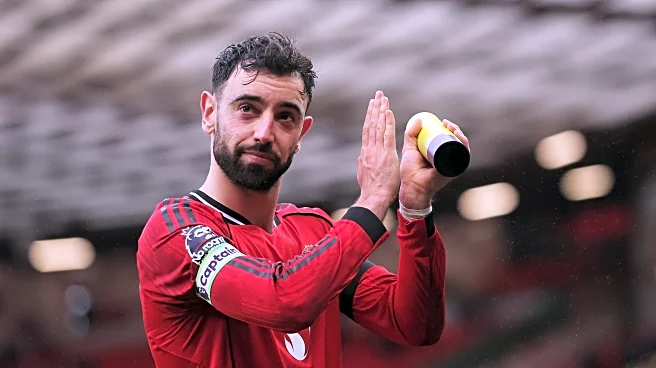What's Happening?
Netflix is increasingly integrating generative AI into its content production and viewer experience strategies. In a recent letter to shareholders, the streaming giant highlighted its use of AI in projects
like 'Happy Gilmore 2' for de-aging characters and in preproduction tasks such as wardrobe and set design for 'Billionaire's Bunker.' Netflix is also exploring AI-driven ad formats and beta testing a conversational search experience to improve content discovery. CEO Ted Sarandos expressed confidence in AI's potential to enhance storytelling, though he acknowledged it cannot replace creative talent. The company is aware of the sensitivities and legal challenges surrounding AI, particularly in content creation, and has established guidelines to address these issues.
Why It's Important?
Netflix's adoption of generative AI represents a significant shift in the entertainment industry, potentially setting new standards for content creation and distribution. By leveraging AI, Netflix aims to streamline production processes, reduce costs, and enhance viewer engagement through personalized content recommendations. This move could influence other streaming services to adopt similar technologies, potentially reshaping the competitive landscape. However, the integration of AI also raises concerns about the impact on creative jobs and the authenticity of content, as well as legal issues related to copyright and intellectual property.
What's Next?
As Netflix continues to integrate AI into its operations, the company may face scrutiny from industry stakeholders, including content creators and legal experts, regarding the ethical and legal implications of AI use. The success of AI-driven initiatives could lead to broader adoption across the industry, prompting discussions on regulatory frameworks and best practices. Netflix's ongoing AI developments will likely be closely monitored by competitors and investors, influencing future strategies in the streaming market.











